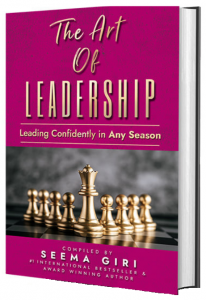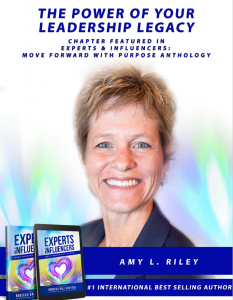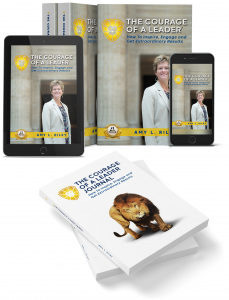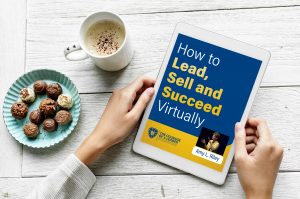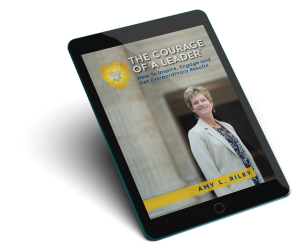Feel guilty for not joining the 5am club? You’re not alone—and you’re not doing it wrong.
In the latest episode of the Unfiltered Series, Amy and Daphna break down the myth that success has to start before sunrise. Explore why early wakeups aren’t a magic formula and how tuning into your natural energy leads to more focus, creativity, and confidence throughout the day. Morning routines aren’t about checking off boxes. They’re about anchoring yourself with what feels right for you. Whether it’s a cup of coffee in silence, a walk in nature, or journaling at lunch, the key is to find moments that support your well-being. Together they share honest stories, practical ideas, and simple ways to create routines that leave you feeling grounded—not pressured.
Key Takeaways:
1. Stop Forcing Routines That Don’t Fit – Trying to copy someone else’s morning habits can leave you drained. Start with what actually supports you.
2. Define What “Morning” Means to You – Whether your day starts at 6am or 11am, your rhythm matters more than the clock.
3. Build Anchors, Not Checklists – The power of routine is in creating grounding moments, not ticking boxes. Even five minutes of reflection counts.
4. Make Space for Joy and Curiosity – Whether it’s coffee in a park or journaling before bed, choose practices that feel good—not just productive.
5. Success Starts With Self-Trust – The most courageous move is listening to your body, experimenting, and trusting what works for you.
Connect with Your Co-Hosts:
Daphna Horowitz
https://www.linkedin.com/in/daphnahorowitz/
https://www.facebook.com/PEACSolutions
https://podcasts.apple.com/ca/podcast/leadership-live/id1524072573
Amy L. Riley
http://www.courageofaleader.com
https://www.linkedin.com/in/amyshoopriley
Thanks for listening!
Thanks so much for listening to our podcast! If you enjoyed this episode and think that others could benefit from listening, please share it using the social media buttons on this page.
Do you have some feedback or questions about this episode? Leave a comment in the section below!
Subscribe to the podcast
If you would like to get automatic updates of new podcast episodes, you can subscribe to the podcast on Apple Podcasts or Stitcher. You can also subscribe in your favorite podcast app.
Leave us an Apple Podcasts review
Ratings and reviews from our listeners are extremely valuable to us and greatly appreciated. They help our podcast rank higher on Apple Podcasts, which exposes our show to more awesome listeners like you. If you have a minute, please leave an honest review on Apple Podcasts.
Transcript
Welcome to our podcast series Unfiltered. This is where we have courageous conversations about topics that are not always discussed in the mainstream or in the workplace.
Daphna Horowitz:Here we strip away the polished surface and dive into the raw, messy and deeply human topics that we don't think it talked about often enough.
Amy Riley:We are your unfiltered hosts. I'm Amy from the Courage of a Leader podcast, and
Daphna Horowitz:I'm Daphna from Leadership Live podcast with two coaches from two sides of the world who believe that real growth happens in the uncomfortable, unspoken moments.
Amy Riley:From Workplace trauma to dealing with major life changes and taboo topics like grief, imposter syndrome and menopause. This is the space where nothing is off limits.
Daphna Horowitz:So if you're ready for honest, bold and sometimes messy conversations, let's get into it.
Daphna Horowitz:Today. We are talking about morning routines and why you don't have to wake up at 5am run a marathon, meditate for an hour, write a novel, all before breakfast in order to be considered successful. That hassle, hard, ultra early, checklist style, morning routine. It's not the only path to success, and it's definitely not the right path for everyone, especially if you're like me, more alive and creative at night.
Amy Riley:Yes, I'm tired just hearing about it. Daphna, so if you've ever felt guilty for not being part of the 5am club, you are not alone. You're in good company right here. So if you're that night owl, if you have a slow start to your days, if you get up right before that first meeting, we are giving you a permission slip today to succeed on your own schedule. So I'm excited to dig into this. Daphna, yeah,
Daphna Horowitz:me too, because this has been a question that's been bothering me forever, always trying to fight against that. Should you know, every successful person wakes up early in the morning and does all these things, and I really struggle in the mornings. I have late nights, and it's just easier for me to do my even creative thinking work at night. And yet, there is this push to get up early and do your things, as I said, a million things before breakfast, you know. And then you can feel like you've actually had a good start your day. But my days do not start like that and do not look like that.
Amy Riley:Yes, the same for me, from multiple people, from multiple resources about how we can be successful if we have that super early, 4am 5am start, and it's gotta include, the advice is always very specific. It's gotta include a meditation, a journal, a half hour of exercise, right? And you need this to be I'm reading, some reading, yes, some reading, right? Energize that brain in the morning, right? And then you've checked off this handful of things, and then you can start your day with power or presence. And
Daphna Horowitz:really, if I can be honest, all I'm thinking about is, can I please get a cup of coffee? Think about waking up before I launch into a million activities.
Amy Riley:Absolutely, absolutely Daphna. You know that I've been spending this month in Paris, and because I am working online us morning hours, my work day doesn't start till 3pm so I have had this time in the morning to do different things, but I gotta tell you, when I'm in my day to day, I get up right before i i Get up just in time to get ready for my first meeting of the day. We've been led to believe that like early starter is good. Is successful.
Daphna Horowitz:The key to success, the key to success is start early in the morning. You know,
Amy Riley:Night Owl like, it's almost like, like, irresponsible, not, not a powerful launch to your day. And you and I are here to bust that myth,
Daphna Horowitz:to pass that myth and to say, look at who you are and align with your own natural rhythms. And we'll talk about that before you compare yourself to what the hustle culture? And I do say it's the hustle culture who just wants to push you more based on a formula that is believed to be the success formula, but it's actually not. You know, everybody has their own way. Everybody has their own approach. Everybody is different,
Amy Riley:absolutely. So what I wish the guidance was, and perhaps the guidance that we're going to provide today is not, Hey, wake up at 4am and check off these four or five specific things. Instead, what is the higher level? Guidance. What are we wanting to get and bring it to our days? I mean, the things that I see Daphna that could be the outcomes of a morning routine like that could be a focus or an intention for the day. It's getting exercise done right connecting with purpose for the day, but we can accomplish each of those in our own ways, in our own rhythms throughout the week, without having to have a rigid schedule and structure for it.
Daphna Horowitz:And I want to actually touch on that for a moment, because I think what you're saying is important. It's decide we know certain things that are good for you to do and probably good for you to do at the start of your day, and at the same time, let's define what the start of the day is. For many people, it might be a 6am wake up, and for others, it might be an eight, nine or 11, I don't know. I'm just saying, choose your wake up time that is suited to you and your lifestyle and your, you know, creative thinking time. And I actually want to say that when I was doing the research for this and looking up some stories and wanted to see some famous people like really, I had the question, do all famous, successful people have these early wake ups and fantastic morning routines. And actually, I read that Winston Churchill used to get out of bed at 11. He was known for working in bed until 11am
Amy Riley:like Winston exactly, and he
Daphna Horowitz:didn't need a lot of sleep. He needed only four or five hours sleep. So he would be working well into the night, where you know that the general thinking is you can't do your best work at night, but actually not. And a lot of creative people, a lot of creative people, do their best work at night, their best creative work at night. So at the first point is, choose your wake up time that suits your lifestyle and and what you're doing. And may you just get rid of this notion that if you are a sleeping in kind of person, that maybe you're lazy, you know, I just don't think that's true.
Amy Riley:That's powerful. Choose your wake up time. No, shoulds about it. This is the wake of time that works for you. Yeah. And then I think there's also choose your reflection time and process
Daphna Horowitz:Exactly, exactly. And even here I want to add choose one thing don't build this morning routine. I remember talking to a colleague of mine once wakes up at 5am he's got a two and a half hour morning routine every day, every day, it would be a killer. There is so much journaling, there's so much thinking, there's so much reading, there's exercising, there's, I don't know what else he would like. Just hearing his routine made me tired. So just looking at him with wide eyes and going, seriously, two and a half hours, I think your morning routine could be five or 10 minutes honestly. Again, what I want to also emphasize is we're not saying what's right or wrong for everyone. We are saying figure it out for yourself. And a five or 10 minute routine like you were saying earlier, which I also relate to I have like between my wake up time and my first thing that I have to do a meeting, whatever it is, the shortest possible time, yeah, the shortest possible time,
Amy Riley:same, yeah. I talked to a lot of leaders that I know you do too. Daphna about, you know, it is important to have some reflection about who you are as a leader, how you're doing what you're up to, but how, how and where and when. That reflection, that processing, that thinking, that planning time takes place, is very individual, and could shift based on the workload or the type of work or the season of the year, right? Sometimes we're busy, and there's a lot of projects that are moving, and we need some reflection time, perhaps daily. Sometimes the projects are longer and more in depth, and you might only need reflection time weekly. And what time of day works with your rhythms we all probably know, like, what time of day is the brain a little bit more sluggish. And what time of day are we thinking at our highest level? Right? And that's where you want your reflection, processing, planning time to be, and it might not be 5:30am
Daphna Horowitz:might not exactly. It's really about your internal biological clock, which is related to the circadian rhythms, and that's what we really want to tune into. Want to tune into our circadian rhythms and understand what works for us. And I want to say that reflection time, it just brings to mind a leader that I was working with was having a very hard time. In fact, he's one of those that also early morning wake up. Exercise routine, the whole thing, but he wasn't getting his reflection time in. And we know that for leaders, this is a really important ritual, if you want to call it that. And what, what we kind of figured out together is that for him, the best thing to do is do his wake up, whatever he does, takes his kids to school, drives it. You always used to drive into the office and then get stuck straight away into emails. What we figured out that worked for him was to actually to stop off at his favorite coffee shop, sit there for 30 minutes or whatever, however long it took. It doesn't have to take 30 minutes, but it's the 30 minutes of actually just enjoying your coffee, relaxing a little bit before you get into the office and get stuck into emails. No laptop, no laptop, just his, you know, notebook and whatever method works for him, pen and paper, and spend that time reflecting. So there are so many ways,
Amy Riley:that's it. You bring up the where question, as well as I've been in Paris, I've taken papers. I've taken my notebook right to to parks and been sitting outside right without the laptop. It could be a walk at lunch time. It could at the end of the day. I
Daphna Horowitz:love your Paris story, because that really illustrates how you know, with the time zone differences, it doesn't matter. Your day begins now at 3pm so you know
Amy Riley:well, and I think an interesting concept here is to get away from the rigidity of how these morning routines are described, and instead get into the experimentation. Because my time here in Paris, flipped my schedule on exactly, and it caused new routines. Some are working great. Some, honestly, I'm not loving right, so I'm thinking right now very intentionally about what do I bring back with me to Chicago? Because it's been working here.
Daphna Horowitz:Wow. Okay, do you want to share?
Amy Riley:Ah, yeah. I mean, I think I had been checking, yeah, some space in the day. I'm someone who can like sleep and sleep and sleep in. And I'm going to sleep in until the first thing is scheduled. So perhaps something scheduled in the morning to get me up and going, but then making sure that there's some space in the morning. Go to a new neighborhood. Go and sit by the river, by the water, check out a park. My gosh, are the French great at using their public green spaces. The parks are jam packed, but you can always find a spot for your bum as well. That's awesome. Yeah, like and, and, you know, being out and about, and, you know, going for the walk and buying the latte out and about, being in a different environment, working from home, many, many days. You know, it's just easy to use my cure rig and, yeah, knock it out and get some vitamin D in a new environment, and that will spark a different kind of thinking,
Daphna Horowitz:awesome, awesome. Those are such, such good points. And I think that I love what you're saying. And again, I think it can be part of your morning routine. It can be part of your routine anytime in the day, but bring those elements in, because those are the things that give you energy, and those are the things that add structure to your day. So I love it. I love what you're sharing here. And this experience is awesome because we do, we fall into our regular routines, and that makes me think about something else. Is when you have the same routine, and again, not to say there's a right answer here, because there isn't. But when you fall into a regular routine, and that's what you do, day in, day out, do you make time to actually introduce something different, to introduce, like the outdoors or introduce now, unless I get, I guess, if that's part of your morning routine, but sometimes we need to jazz things up a little bit, maybe just to create interest or keep our brains fresh.
Amy Riley:Yes, yes. Experiment. Um, so this is, this is, this is another one where it's easy to think that, like a routine is good, right? Like I've got my commitment to my routine, and that can be great, but we also want to take a look at that routine from time to time. How is it serving me? Is it still serving me in the same ways that it was when I created it? Do I want to experiment and play with something else, right?
Daphna Horowitz:And we don't want to knock morning routines, because I know that there's a lot about it that really helps. I think it helps to have an anchor to our day. It helps it I'm so related to what you shared about yours, because for me, also having that first meeting of the day is an important anchor for me, because that's kind of that so it's. My Wake up. That's, it's not time that I need to get ready. And that does include, actually, some things that I would love to share about. But yeah, again, it's, it's just making sure that you are looking at it, and not just, you know, kind of falling into the pressure of what sells and what works and what you know formula people keep trying to sell us to live a successful life. And here I want to add also something interesting that I saw that 60% of people reported feeling stressed out by trying to optimize their mornings based on online advice. So we are so susceptible to this online world of here's your key to success. Here are the five things that will make you a happier person, a more fulfilled person, a better leader. But actually, I always say, like, just go back to yourself. So if I can just also add here what my morning routine looks like. It's probably incredibly unconventional, and if one piece falls by the wayside because I've spent a little bit more time answering messages or scrolling or whatever it might be, then I do it later on in the day, and I don't beat myself up about it anymore. But my morning starts with intention, and that's something I often talk about as well as like my morning routine is setting an intention for the day, so having a moment of gratitude just for waking up or having another day for, you know, appreciating that I don't know what this day will bring, and I just want to kind of center myself for a moment be grateful for what I have and for the resources that I have to face whatever this day will bring. And not, not from a negative point of but whatever surprises I want to say, Okay, I know like this world that we live in is so uncertain and unknown, and some are great surprises, some are not great. And I'm just really taking a moment of gratitude that we hear that I'm here, that I know that I have what I need, and I'm going to be excited to unwrap this gift of a new day. Yeah, and then I do, I try to spend 10 minutes in meditation, but as I say, if that doesn't work for me, that happens later on in the day, but I need to start my day slower. I can't jump out of bed and have those, as I say, 234, activities to dive into, because that doesn't work for me. My body takes time to wake up and ease into my day, and I know that that's what I need in the shortest possible time before
Amy Riley:Yes, uh, Daphna, three things I want to double click on from what you just said, like the word anchor that you used a few times is important, right? That often we tout this morning routine because it creates a sort of anchor all of you. How, how do you create an anchor for yourself? Right? It can be through a spiritual practice. It could be by go, you know, going to church over the weekend. It could be by spending time in nature. It could be by talking with your friends over a glass of wine on Friday night, right? There's a lot of different ways that we can anchor and ground ourselves, and then you talked about intention. Like, yeah, we could write in a journal for a half an hour in the morning. Or we could look at our calendar and take 30 Seconds to choose an intention for the day, right? Or we could wrap that up at the end of the work day and state the intention for the next day. Some people love to just think of three things that they're grateful for, or write a few things in a gratitude journal at the end of the day. I mean, I just want to throw out some different possibilities of how we can get the juice, get the benefit of these morning routines that people are espousing. And then, Daphna, you said something very brilliant. Let's say the 10 minutes of meditation don't happen before the first call of the morning, and then you're off into your day. You do it later. I think the morning routine idea can set up an all or nothing kind of mentality, and if we don't get to all five check marks right, then we've screwed it up. We haven't done the morning routine. It's over like, you know, it's Monday. Now we're we're a failure until Tuesday. No, it's not all or nothing, right? When does it work? What are the different pieces and practices that you put together on whatever cadence makes sense to you? I mean, my exercise does not happen in a half an hour in the morning, right? I'm a runner. I like to go on longer runs. It's not every day, but you know, it can be hours on the day that I do do it, right? Totally different kind of schedule,
Daphna Horowitz:exactly. And I'm so with you on that, because when I was running, which I'm not now because of my injury. But. But I was a night runner. I was a night runner. Never was a morning run. And in fact, I want to say that there was a time where I again, you know, pressure of the what do we call a general wisdom that says you need to exercise in the morning or run in the morning. I went on a few runs in the morning, and I actually felt thick. I felt nauseous, I felt weak. It did not work for me, and that's when I go, okay, it doesn't work for me. I'm going to do that in the evening, because that's better for me. Tried
Amy Riley:it. You experimented. You noticed, right? And then you trusted yourself, and you gave yourself permission to slap that in another time.
Daphna Horowitz:And maybe here's a time to say a little bit about comparison. You know, when we try to compare ourselves to others or what we think is right, we only get ourselves more down. And I don't think we kind of, I don't think it's effective. I think it it, you know, creates negativity. It creates a feeling of never feeling good enough, never being like I should be, all these shoulds. And, you know, I think it's time to take our power back and say, what's good for me, what works for me, what have I tried and and to try, it's always important to try and see what works. But be
Amy Riley:we don't know, right? I don't know some of these rhythms that are happening for me in Paris would be so productive and satisfying and useful. I've, I've, I've taken some, some notes I'm super excited about in this in this notebook, but yeah, it's about trying and and then trusting ourselves, kind of because we have our own preferences, our own strengths, our own situations. Yeah,
Daphna Horowitz:now that leads me to a question I would love to leave you the listeners, with, which is, when do you feel naturally alive? When? When is the best time for you to do what? There are different things for different times of the day. So start to look at that and notice, when do you feel naturally alive? That that's when you can do your best work, perhaps your most challenging work, whether it's physically, mentally, emotionally and and start building your day that way, lovely,
Amy Riley:lovely. And you can choose the practices like we've talked about, to feel grounded, to set intentions throughout your week, to get the exercise and the mental stimulation that you want and need to connect with yourself in in meaningful ways, and choose the practices. They don't have to be daily. They don't have to be in the morning. They just have to work for you in this moment. Yeah,
Daphna Horowitz:yeah. And, and you have to, have to. I don't like I have to, but, yeah, I want to invite you to think about, what do you love doing? What would make your mornings amazing? What would bring you joy? Is it that first cup of coffee? Is it that snooze or, you know, like lying in bed as you've woken up and like not jumping up? Is it having something to read or think about as you start your whole wake up? So yeah, that's something that I think is also important to think about. What brings you joy? What is one thing that you love doing in the morning?
Amy Riley:When and where are you alive? What brings you joy in the morning? Experiment, trust yourself and choose the practices that work for you exactly,
Daphna Horowitz:exactly. Yeah. So I have, I have a saying that I'd love to put in here, because it ties in so beautifully. And I say, you don't have to wake up earlier to chase success. You just have to wake up to who you already are,
Amy Riley:beautiful. Daphna. I think that's a great note to end on awesome good. Thank you for joining us on this unfiltered series podcast episode where we had a courageous conversation about morning routines.
Daphna Horowitz:That's a wrap on this episode of Unfiltered where we have courageous conversations about topics that are not often discussed in depth. We hope this conversation sparked something in you, whether it's a new perspective, a moment of reflection, or just the reassurance that you're not alone.
Amy Riley:If you found this episode meaningful, please share it with someone who needs to hear it, and if you have a topic that you'd love for us to tackle, let us know we are always up for conversations that don't get talked
Daphna Horowitz:about enough. Don't forget to subscribe. Leave a review and connect with us on LinkedIn. All our details are in the show notes, because the best conversations don't end here
Amy Riley:Until next time see. Curious, stay courageous and stay unfiltered.


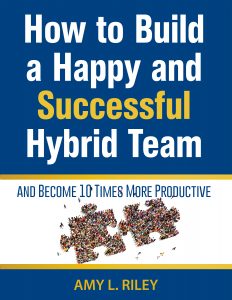
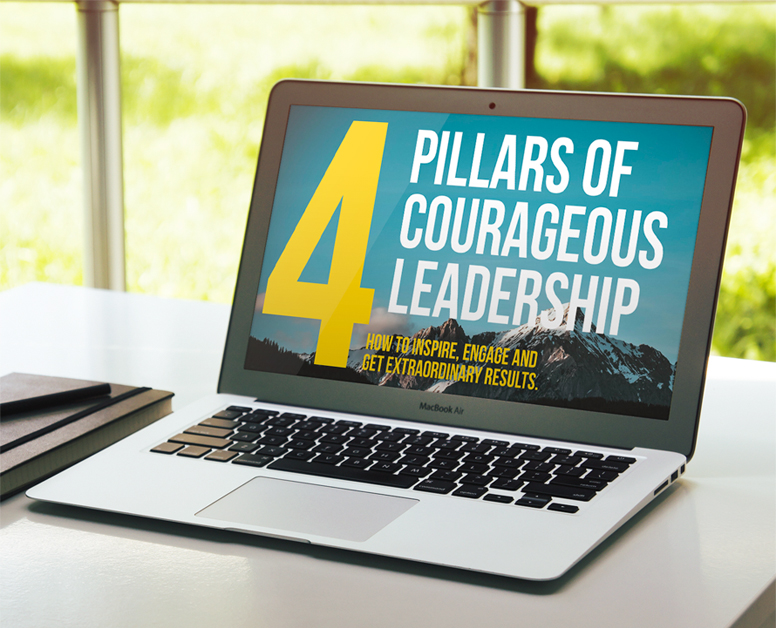 A Summary of The Courage of a Leader® 4 Pillars
A Summary of The Courage of a Leader® 4 Pillars